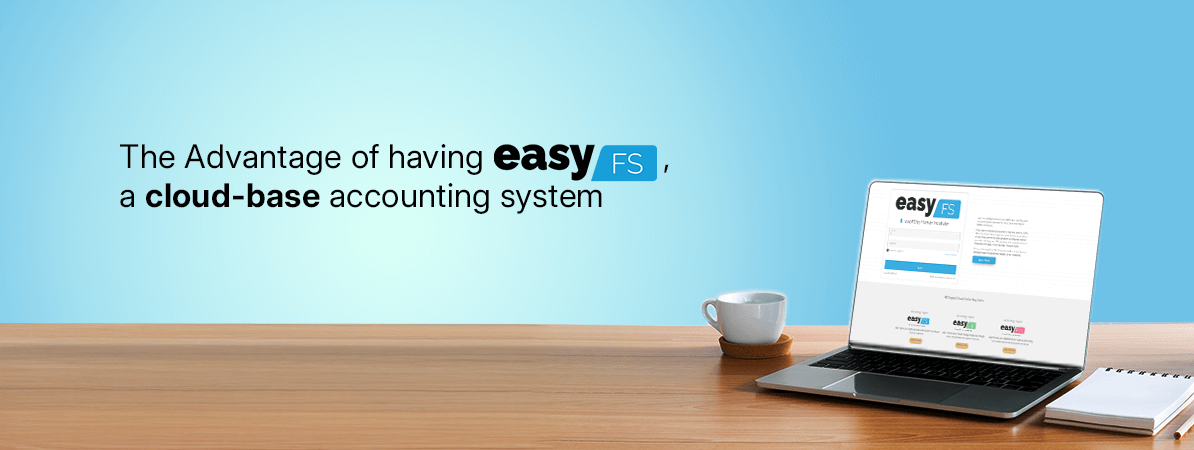By: Jaybe Ligan
2025/02/04
Introduction
Accounting is the backbone of any business, ensuring accurate financial records, compliance, and strategic decision-making. With technological advancements, businesses now have two primary choices: cloud accounting and traditional accounting. While traditional accounting relies on desktop-based software or manual record-keeping, cloud accounting provides remote access to financial data through the internet.
For example, a retail store using traditional accounting may require its accountant to be physically present to update and check records. In contrast, a store using cloud accounting can have its accountant access real-time financial data from anywhere, making financial management more flexible and efficient.
This article explores the differences between these two methods, their advantages and disadvantages, common challenges, and solutions to help businesses determine the best approach for their financial management.
Common Challenges Faced
Both cloud and traditional accounting come with their own set of challenges that businesses must address to ensure efficiency and accuracy in financial operations.
Traditional Accounting Challenges:
- Limited Accessibility: Traditional accounting software is typically installed on a specific computer, restricting access to financial records. For example, a company relying on manual bookkeeping might struggle when multiple team members need access to records simultaneously.
- Higher Costs: Businesses need to invest in hardware, software licensing, regular upgrades, and IT support, making traditional accounting more expensive in the long run. A small business using desktop accounting software may need to purchase new licenses for every device, increasing costs significantly.
- Data Security Risks: Financial records stored on local computers are vulnerable to data loss due to system crashes, hardware failures, or theft. For instance, if a computer containing financial records is stolen, the business could lose critical data.
- Time-Consuming Processes: Manual data entry and reconciliation increase the risk of human error, leading to inefficiencies in financial reporting. A manufacturing company handling hundreds of transactions manually may find it difficult to track invoices and payments efficiently.
Cloud Accounting Challenges:
- Internet Dependency: A stable internet connection is required to access financial data, making businesses vulnerable to disruptions caused by connectivity issues. For example, a restaurant using Cloud accounting may experience delays in accessing reports if the internet goes down.
- Security Concerns: Since data is stored on third-party servers, there is an inherent risk of cyber threats, data breaches, and hacking attempts. A business that fails to implement strong passwords and multi-factor authentication may be at risk of unauthorized access.
- Learning Curve: Businesses transitioning from traditional accounting may require employee training to adapt to the cloud-based system. For instance, a law firm switching to Cloud accounting may need to train its staff on how to use digital invoicing tools effectively.
- Subscription Costs: Cloud accounting services typically follow a subscription-based pricing model, which can add up over time and impact the company’s budget. A startup using Cloud accounting software with multiple features may find it costly compared to a one-time payment for traditional software.
How To Solve These Challenges
Businesses can take proactive steps to mitigate the challenges associated with both accounting methods to ensure seamless financial management.
Overcoming Traditional Accounting Challenges:
- Implement Automated Backup Solutions: Businesses should set up external hard drives or cloud-based backup systems to protect financial data from hardware failures. For example, an accounting firm can schedule daily automated backups to prevent data loss.
- Upgrade to Cloud-Enabled Accounting Software: Hybrid solutions allow businesses to transition gradually by combining the benefits of both traditional and Cloud accounting. Companies can use desktop software with cloud backup options to enhance accessibility and security.
- Use Secure Filing Systems: Implementing password-protected files and restricted access to sensitive financial information can help prevent unauthorized access. For example, a business can store financial records in encrypted folders accessible only to authorized personnel.
- Automate Repetitive Accounting Tasks: Businesses can use automation tools to reduce manual work and minimize errors. For instance, automated invoicing software can generate and send invoices without manual input, saving time and effort.
Overcoming Cloud Accounting Challenges:
- Ensure High-Speed Internet Connectivity: Businesses can invest in backup internet solutions, such as mobile hotspots or secondary broadband connections, to prevent disruptions. For example, a retail business relying on Cloud accounting can use a 4G backup connection to ensure continued access.
- Choose Reputable Cloud Providers: Selecting accounting platforms with robust encryption, two-factor authentication, and regular security audits can safeguard financial data. For instance, using platforms like Xero or FreshBooks and EasyFS can provide advanced security protections against cyber threats.
- Conduct Employee Training Programs: Businesses can organize workshops or online training sessions to help employees understand Cloud accounting features. For example, a company switching to QuickBooks Online and EasyFS can provide interactive training to ensure a smooth transition.
- Evaluate Cost-Effective Subscription Plans: Companies should compare different Cloud accounting pricing models to find the most budget-friendly option. For instance, a small business with limited accounting needs can opt for a basic subscription instead of a premium plan with advanced features.
By implementing these strategies, businesses can effectively manage accounting challenges and maximize the benefits of their chosen financial management system.
Why Choose Cloud Accounting?
Cloud accounting is gaining popularity due to its ability to offer real-time access and streamline financial processes. Some of its key benefits include:
- Real-time Access: Business owners, accountants, and stakeholders can access financial records from any location with an internet connection. For example, an entrepreneur traveling abroad can still check company financial statements in real-time.
- Cost-Effective: Eliminates the need for expensive on-premise infrastructure and IT maintenance.
- Automatic Updates: Software updates, security patches, and new features are managed by the provider, ensuring up-to-date functionality.
- Enhanced Collaboration: Multiple users can access and update financial data simultaneously, improving workflow efficiency. For instance, a remote bookkeeping team can update records while business owners review financial performance at the same time.
- Scalability: Cloud accounting solutions can be tailored to meet the needs of small startups or large enterprises, ensuring seamless expansion.
Why Choose Traditional Accounting?
Despite the rise of cloud-based solutions, traditional accounting still offers advantages for businesses that require more control over their financial operations. Some key benefits include:
- Greater Control: Businesses have full control over data storage and security, reducing reliance on third-party providers.
- No Internet Dependency: Traditional accounting software functions offline, ensuring uninterrupted access to financial records. A rural-based business without reliable internet can benefit from this feature.
- Customizable Solutions: Businesses with specific compliance requirements can implement tailored accounting solutions that meet regulatory standards.
- Data Confidentiality: On-premise storage minimizes the risk of cyber threats and data breaches. For example, financial institutions may prefer on-premise solutions to ensure regulatory compliance.
Getting Started with Cloud Base and Traditional Accounting
Choosing the right accounting method depends on the unique needs and goals of a business. Here’s how companies can get started with their preferred approach:
For businesses considering Cloud accounting:
- Research and select a trusted Cloud accounting provider (e.g., QuickBooks, Xero, FreshBooks, EasyFS).
- Migrate financial data with the help of an accounting professional to ensure accuracy and completeness.
- Train employees on the new system to ensure seamless adoption and minimize operational disruptions.
- Establish security protocols such as multi-factor authentication and data encryption to safeguard financial records.
For businesses preferring traditional accounting:
- Invest in reliable accounting software with offline capabilities and robust security features.
- Set up a structured bookkeeping system to ensure efficient financial record-keeping and reporting.
- Maintain regular backups to prevent data loss and safeguard critical financial information.
- Hire a dedicated accountant or financial team to manage bookkeeping tasks effectively and ensure compliance with financial regulations.
Conclusion
The decision between Cloud accounting and traditional accounting ultimately depends on a business’s operational needs, budget, and scalability requirements. Cloud accounting offers flexibility, automation, and cost savings, making it an excellent choice for businesses looking for real-time accessibility and streamlined financial processes. On the other hand, traditional accounting provides greater control and security, making it ideal for businesses that prioritize data confidentiality and offline accessibility.Ultimately, businesses must evaluate their specific requirements, industry regulations, and long-term financial goals before making a decision. Whether opting for the technological advancements of Cloud accounting or the stability and familiarity of traditional methods, the key is to implement an efficient, secure, and cost-effective accounting system that enhances financial management, ensures compliance, and supports future growth.











